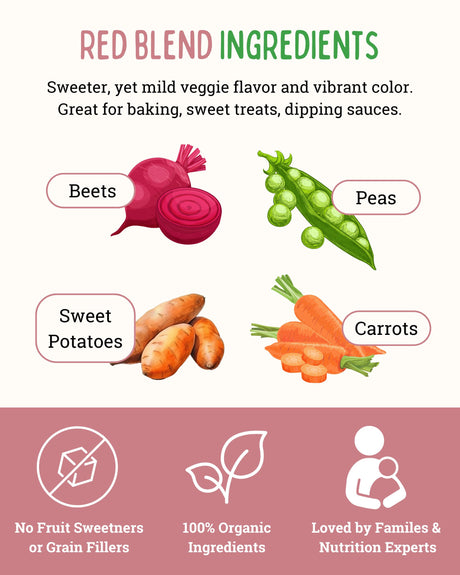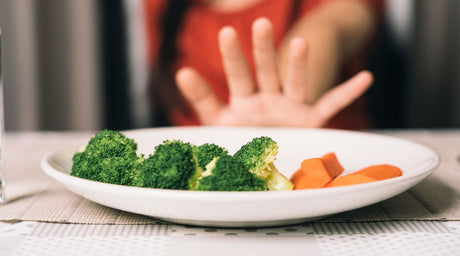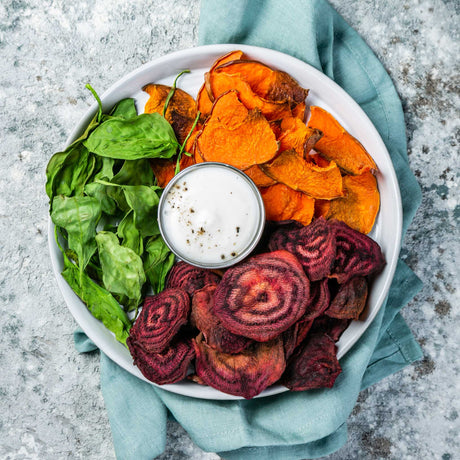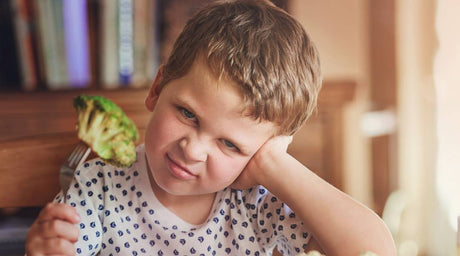The Challenge of Food Allergies During the Holidays
As the holiday season approaches, families everywhere are gearing up for festive celebrations filled with joy, laughter, and, of course, plenty of delicious food. However, for families with children who have food allergies, this time of year can bring a unique set of challenges.
The abundance of holiday treats and communal meals, while delightful, can pose serious risks for kids with allergies. Navigating these festive gatherings requires extra vigilance and planning to ensure everyone's safety and enjoyment.
Importance of Awareness and Preparation
Awareness is the first step in managing food allergies during the holidays. It's crucial for parents and caregivers to understand the specific allergies their children have and the potential triggers that might be lurking in holiday dishes.
Preparation goes hand in hand with awareness. This means not only being ready with safe food options but also equipping children with the knowledge and skills they need to avoid allergens. It's about creating a safe environment where kids can still partake in the joy of the season without feeling left out or at risk.
Empowering Parents and Kids to Navigate Holiday Feasts Safely
The goal of this blog is to empower parents and children to confidently manage food allergies during the holiday season. We'll explore practical strategies for preparing for holiday gatherings, safe food preparation, educating kids about their allergies, and dealing with accidental exposures. By the end of this guide, parents will have a toolkit of resources and knowledge to help their children enjoy the holidays safely, despite the challenges of food allergies.
Understanding Food Allergies
Common Food Allergens
When it comes to food allergies, certain foods are more likely to cause reactions than others. The most common allergens include nuts, dairy, eggs, soy, wheat, fish, and shellfish. These foods account for the majority of allergic reactions in children.
It's important for parents to be aware of these common allergens, especially during the holidays when they are often present in traditional dishes. Understanding which foods pose a risk is the first step in safeguarding your child's health during festive gatherings.
Recognizing Allergic Reactions
Recognizing the signs of an allergic reaction is crucial for parents and caregivers. Symptoms can range from mild to severe and may include hives, itching, swelling, difficulty breathing, stomach pain, vomiting, or anaphylaxis in extreme cases.

Quick recognition of these symptoms can be life-saving, especially during a busy holiday event where allergens might be more prevalent. Parents should educate themselves and their children on these signs and ensure that everyone involved in the child's care is aware of them.
The Impact of Food Allergies on Kids
Food allergies can significantly impact a child's life, especially during social events like holiday gatherings. Beyond the physical symptoms, there's also an emotional aspect to consider.
Children with food allergies often feel left out or different, and this feeling can be amplified during the holidays when food is a central part of the celebration. It's important for parents to acknowledge these challenges and find ways to make their child feel included and safe. This might mean preparing special dishes, educating family and friends about the child's allergies, or finding non-food ways to celebrate the season.
Pre-Holiday Planning
Communicating with Family and Friends
The holidays are a time for gathering with loved ones, but for families managing food allergies, it requires some extra planning. Communication is key. Well before any holiday event, talk to your family and friends about your child's food allergies. Explain the severity of the allergies and the importance of avoiding cross-contamination. It's helpful to provide specific examples of safe foods and potential hidden allergens in holiday dishes. This open dialogue not only raises awareness but also helps in creating a safe and inclusive environment for your child.
Researching Holiday Menus and Ingredients
Knowledge is power when it comes to managing food allergies. Before attending any holiday event, take the time to research the menu. If you're dining at someone else's home, don't hesitate to ask about the ingredients used in each dish.
For public events or restaurant outings, check menus online or call ahead to inquire about allergy-friendly options. Being informed about what will be served can help you plan accordingly, whether it means eating beforehand, bringing safe dishes for your child, or discussing menu modifications with the host.

Preparing an Allergy Action Plan
An Allergy Action Plan is a must-have for any family dealing with food allergies. This plan should outline the steps to take in case of an allergic reaction, including the signs of a reaction, how to administer medication (like an epinephrine auto-injector), and emergency contact information.
Make sure this plan is easily accessible during holiday events, and that everyone who will be with your child knows how to use it. It's also wise to carry a doctor's note and extra medication, just in case. Preparing for the worst-case scenario gives peace of mind and ensures you're ready to act quickly if needed.
Safe Food Preparation
Tips for Allergy-Friendly Cooking
Creating a safe and enjoyable holiday feast starts in your kitchen. When preparing allergy-friendly dishes, focus on using fresh, whole ingredients, as they are less likely to contain hidden allergens.
Experiment with allergy-safe alternatives to traditional ingredients. For example, use almond milk instead of cow's milk, or gluten-free flour for baking. Don't forget to get creative with herbs and spices to add flavor without the allergens.
Remember, cooking allergy-friendly doesn't mean sacrificing taste; it's an opportunity to explore new recipes and flavors that everyone can enjoy.
Cross-Contamination Prevention
One of the biggest risks in food preparation for those with allergies is cross-contamination. To prevent this, always use clean utensils, cutting boards, and cookware when preparing allergy-friendly meals.
If possible, designate specific kitchen tools for allergy-safe cooking. Be mindful of how food is stored in your kitchen; keep allergy-friendly items separate and clearly labeled. Educate everyone in the household about these precautions to ensure a safe cooking environment.
Label Reading and Ingredient Awareness
Being vigilant about label reading is crucial for managing food allergies. Food labels can be a minefield of hidden allergens, so it's essential to read them carefully. Look out for phrases like "may contain traces of..." or "manufactured in a facility that also processes...," as these can indicate a risk of cross-contamination.

Be aware of less obvious sources of allergens, such as certain food additives or preservatives. When in doubt, contact the manufacturer for more information. Staying informed and cautious about ingredients helps ensure a safe and happy holiday season for everyone.
Educating Kids About Their Allergies
Age-Appropriate Discussions on Allergies
It's essential to have open and honest conversations with your children about their food allergies, tailored to their age and understanding. For younger children, use simple terms to explain what allergies are and the importance of avoiding certain foods.
As they grow older, provide more detailed information about reading food labels and understanding the risks of cross-contamination. Encourage questions and provide clear, reassuring answers. This ongoing dialogue helps children feel more in control and less anxious about their allergies.
Role-Playing Scenarios
Role-playing can be an effective tool in teaching kids how to handle real-life situations involving their allergies. Create scenarios where they might be offered food by friends or family members and practice how to politely decline or ask about ingredients.
Role-playing can also include how to communicate with teachers or caregivers about their allergies. This practice builds confidence and prepares them to navigate social situations safely.
Empowering Kids to Speak Up
Empowering children to advocate for themselves is crucial in managing their food allergies. Teach them the importance of speaking up about their allergies in various settings, whether at school, a friend’s house, or a family gathering.

Encourage them to always ask questions about food and to never feel embarrassed or hesitant to express their needs. By fostering a sense of self-advocacy, you help your child develop the skills and confidence needed to manage their allergies effectively and independently.
Navigating Holiday Parties and Gatherings
Strategies for Attending Social Events
The holiday season is filled with social events that can be challenging for families managing food allergies. Preparation is key. Before attending a party, communicate with the host about your child's allergies and discuss the menu.
It's also helpful to have a plan for how to navigate buffets or shared meals, such as eating before the event or identifying safe foods upon arrival. Remind your child of their allergy management strategies and ensure they know what to do in case of accidental exposure.
Bringing Allergy-Safe Alternatives
One effective way to ensure your child has safe options at holiday gatherings is to bring allergy-safe alternatives. Prepare and bring dishes that everyone can enjoy, but that are specifically safe for your child.
This not only guarantees that your child won't feel left out but also provides an opportunity to share delicious, allergy-friendly foods with others, raising awareness and understanding among family and friends.
Educating Hosts and Guests
Educating hosts and guests about food allergies is crucial for creating a safe environment. Offer to provide information about safe food handling and cross-contamination prevention. You can also suggest labeling dishes with ingredients, which can be a fun and informative addition to the gathering. Encouraging open dialogue about food allergies helps create a supportive community around your child, making holiday events more enjoyable and less stressful for everyone involved.
Dealing with Accidental Exposure
Recognizing Symptoms
Understanding and quickly recognizing the symptoms of an allergic reaction is crucial, especially during the holiday season when new foods and environments can increase the risk of accidental exposure. Common symptoms can range from mild, such as hives or a runny nose, to more severe reactions like difficulty breathing or swelling of the throat. Educate your child and those around them to recognize these signs, as early detection is key to effective management.
Immediate Response and Treatment
In the event of accidental exposure, having a clear and immediate response plan is vital. If your child has been prescribed an epinephrine auto-injector, ensure it's always accessible, and everyone knows how to use it. Administer the medication as soon as a serious reaction is suspected. For milder reactions, antihistamines might be sufficient, but always follow the advice given by your healthcare provider.
When to Seek Medical Attention
Knowing when to seek medical attention is a critical aspect of managing food allergies. If your child experiences symptoms of anaphylaxis, such as difficulty breathing, a drop in blood pressure, or loss of consciousness, call emergency services immediately.
Even if the symptoms seem mild but are persistent or if there's any doubt about the severity of the reaction, it's better to err on the side of caution and consult a healthcare professional. Post-exposure, it's also advisable to follow up with your child's allergist to review the incident and adjust the allergy management plan if necessary.
Summarizing Key Takeaways
As we wrap up our discussion on managing food allergies during the holidays, let's revisit the essential points. Preparing for the holiday season involves clear communication with family and friends, understanding common allergens, and having an action plan for accidental exposures. Remember, the goal is to ensure a safe and enjoyable holiday experience for your child without letting food allergies overshadow the festive spirit.
Encouraging Ongoing Awareness and Education
Continual awareness and education about food allergies are vital, not just during the holidays but all year round. Staying informed about the latest in allergy management, being vigilant about food ingredients, and educating those around you, including your child, creates a safer environment. Encourage your child to be proactive about their allergies, as this empowers them and builds their confidence in managing their condition.
Share Your Experiences and Tips
We invite you to share your experiences and tips for navigating the holiday season with food allergies. Your stories and strategies could provide invaluable support and ideas to other families facing similar challenges.
Whether it's a successful approach to holiday meals, a favorite allergy-friendly recipe, or how you've educated your child about their allergies, your insights can help build a supportive community for parents navigating food allergies during the holidays and beyond. Tag us at @easypeasieco or use #easypeasie.













